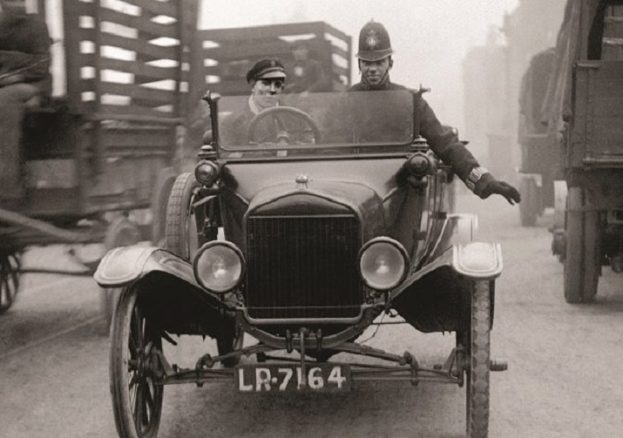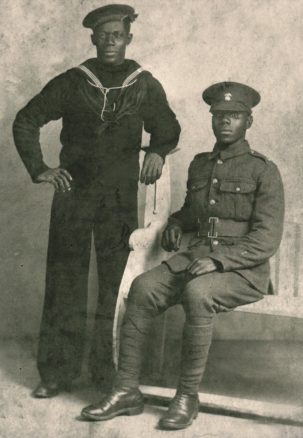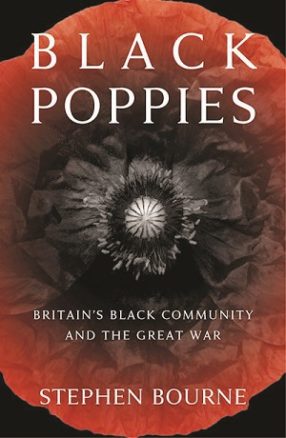
In Black Poppies the accounts of black servicemen fighting for their ‘Mother Country’ are charted from the outbreak of war in 1914 to the conflict’s aftermath in 1919, when black communities up and down Great Britain were faced with the anti-black ‘race riots’ in spite of their dedicated service to their country at home and abroad.
Stephen, who is an award-winning writer and historian from Southwark, has updated his best-selling study of the black presence in Britain during the First World War, and brings into the public domain yet more stories of servicemen of African heritage.
He said: “The first edition of Black Poppies was published in 2014 to coincide with the centenary of the First World War and I was thrilled when it began to fly off the shelves.
“Most people in the black community were aware that their ancestors had supported the British in the conflict, but they didn’t have the details, the life stories, because historians had ignored them. I wanted to address this.”
Stephen began writing black British history books in 1991 and for the first edition of Black Poppies, he received the Southwark Arts Forum prize for Literature.

In 2017 he was awarded an Honorary Fellowship from London South Bank University for his contribution to diversity.
“The Honorary Fellowship is a great accolade,” he said. “but I have to stress that I do not consider myself an academic.
“My approach to history has always been to seek out first-hand testimony and to avoid using words ending in ology.
“This wasn’t easy with the First World War because so few people from that generation were still living when I wrote the book.
However, with thorough research, I have managed to uncover some fascinating first-hand reminiscences by the people who made that history.”
Stephen has been given access to the previously unpublished personal wartime correspondence of the Jamaican siblings Vera, Norman and Douglas Manley.
The Manley family had made their home in Britain when the war started and Norman and Douglas joined up immediately.
Their private letters bring to light the day to day trials, tribulations, tragedies and triumphs of life on the battlefields as well as Vera Manley’s eyewitness account of the 1917 Russian revolution.
Stephen has also highlighted several South Londoners including Trinidad’s George A. Roberts.
He left his Caribbean island home to join a British regiment and served on the battlefields. After the war he joined the British Legion and became a tireless campaigner for the rights of ex-servicemen.
Stephen said: “Racism existed but there are many examples of black servicemen, like George, who successfully integrated into British regiments and fought alongside their white comrades.”

Stephen is proud that he nominated and then campaigned for George to receive a Southwark Heritage Blue Plaque which was unveiled in September 2016 outside his former home in Warner Road, Camberwell.
Other South Londoners in the book include the composer Amanda Ira Aldridge and music hall star Cassie Walmer.
Cassie, a resident of Brixton, entertained the British public all through the Edwardian era and continued working all through the First World War.
As a stage artiste she developed her talents as a comedienne, eccentric dancer and singer.
Photographs of Cassie show a glamorous young woman.
Hundreds of newspaper reports of the First World War period mention Cassie’s stage appearances and reveal that she was extremely popular with audiences.
By the end of the 1920s she had retired from the world of entertainment. Cassie died in London in 1980 age 92.
During the First World War, John Archer, a former Mayor of Battersea, became an important leader for Britain’s black community.
He campaigned for better treatment of returning ex-servicemen who faced hostility and unemployment.
In 1918, he said on behalf of the African Progress Union, an organisation he helped establish: “Our compatriots from Africa, America and the West Indies have been fighting on the fields of France against a foreign foe.
“We claim our rightful place within this Empire.
If we are good enough to be brought to fight the wars of the country, we are good enough to receive the benefits of the country.”
Stephen has also acknowledged the first memorial to African and Caribbean servicemen and women which, on June 22, 2017, was unveiled in Windrush Square, Brixton, close to the home of the Black Cultural Archives.
Jak Beula, of the Nubian Jak Community Trust, made this possible.
When he addressed the audience at the event, he said: “More than two million African and Caribbean military servicemen and servicewomen participated in the two world wars but they have not been recognised for their contribution.
“The unveiling of this memorial is to correct this historical omission and to ensure young people of African and Caribbean descent are aware of the valuable input their forefathers had in the two world wars.”
Stephen Bourne’s new version of Black Poppies – Britain’s Black Community and the Great War (The History Press, £12.99) is now available to order online from Amazon and from bookshops.
